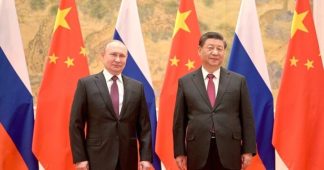Prime Minister Fumio Kishida has just completed a diplomatic tour of Southeast Asia in an attempt to rally countries in the region that have taken a neutral stance on Russia’s invasion of Ukraine.
The war in Ukraine has led Japan, the only Asian country in the G7 organization, to step out of its usual reserve in times of international crises. After strongly condemning the Russian invasion, it now aims to be seen as the unifying country of a “free and open” Asia “rejecting any unilateral attempt to change the status quo by force. Prime Minister Fumio Kishida’s recent trip to Southeast Asia, where he visited Indonesia, Vietnam, and Thailand between April 29 and May 1, illustrates Tokyo’s desire to rally around Asian countries with positions that often differ from the West’s on the Ukrainian crisis.
Tokyo anticipates that the war in Ukraine may be the beginning of a disruption of international norms, which, starting in Europe, will also have its impact on the other end of the world – if only because of the extension of Russian territory to the Far East. While in Europe the danger comes primarily from Russia, for Japan it is twofold: To China’s hegemonic ambitions must now be added a Russia that “has just shown that it can operate both in the West and in the East,” said Japanese Minister of Defense Nobuo Kishi after the Russian fleet’s recent exercises in the Sea of Okhotsk, north of Hokkaido, Japan’s northernmost island. Concentrated until now in the southwest of the archipelago facing China, the Japanese defense will have to strengthen its positions in these latitudes – as in the days of the USSR.
Continue reading at www.lemonde.fr
We remind our readers that publication of articles on our site does not mean that we agree with what is written. Our policy is to publish anything which we consider of interest, so as to assist our readers in forming their opinions. Sometimes we even publish articles with which we totally disagree, since we believe it is important for our readers to be informed on as wide a spectrum of views as possible.











